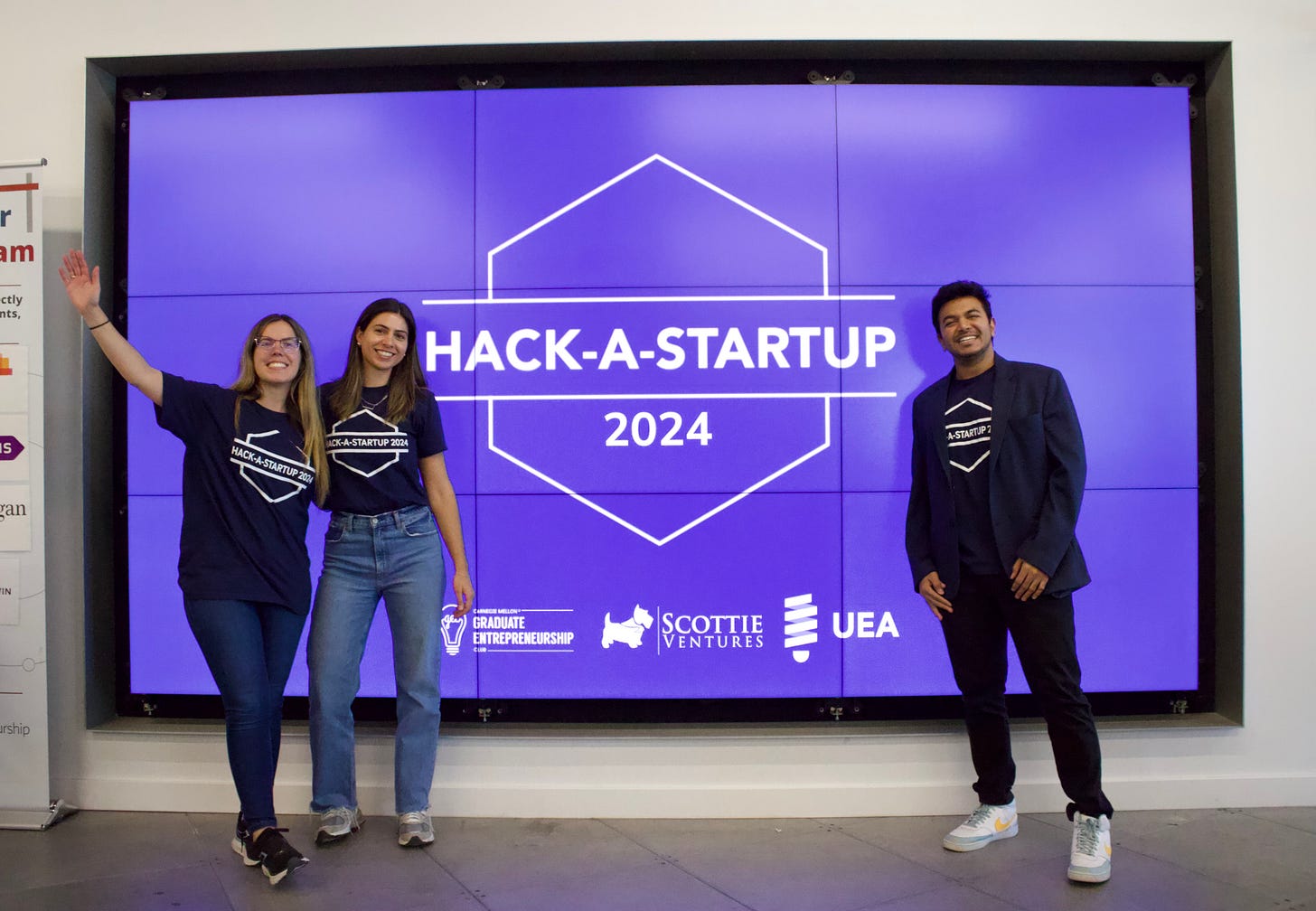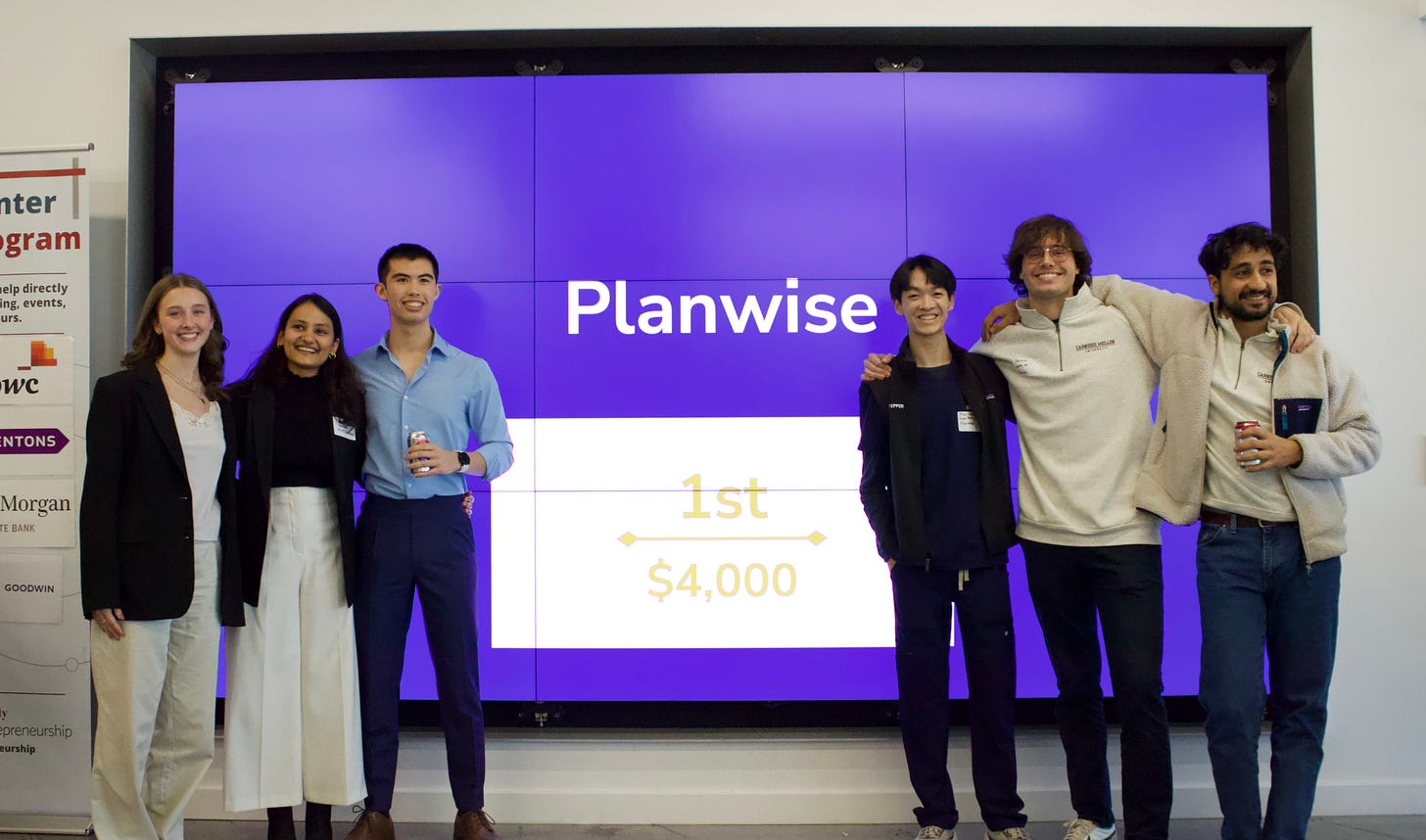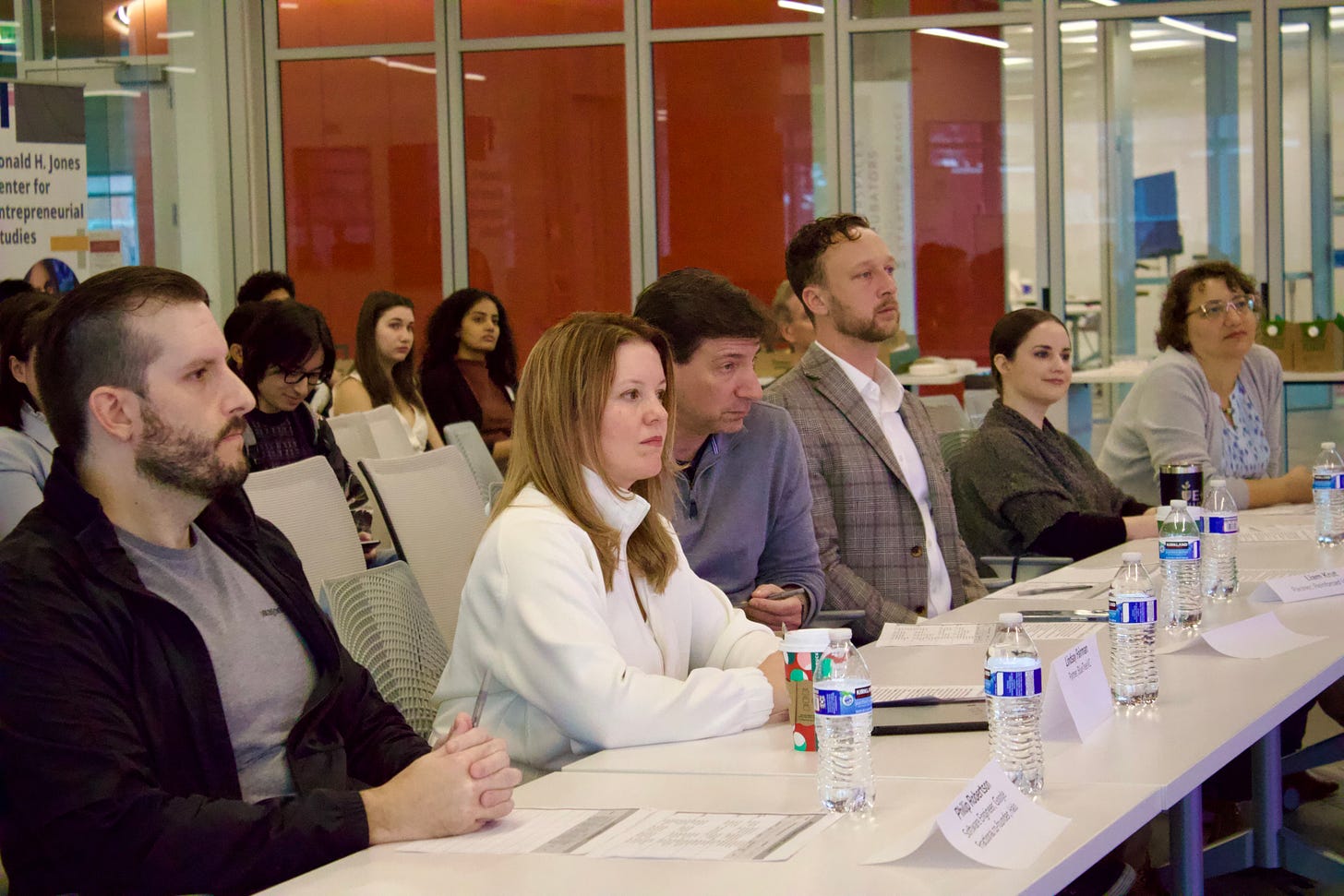Hack-a-Startup: A Spark for Pittsburgh’s Future Founders
photo: Lananh Doan
This is the second installment in our two-part coverage of CMU’s Hack-a-Startup competition with contributions from Amanda Manget and Daniela Decoud. If you missed Part 1, you can catch up here.
Carnegie Mellon University’s Hack-a-Startup competition offers students an immersive opportunity to explore entrepreneurship, tackle practical challenges, and transform their ideas into tangible solutions. This year’s competition awarded nearly $10,000 in cash prizes to three standout teams. Organized by the Graduate Entrepreneurship Club’s directors—Amanda Manget, Daniela Decoud, and Nisarg Doshi—the event was held at the Swartz Center and brought together undergraduate and graduate students from a variety of academic and professional backgrounds. Participants pitched innovative ideas, refined prototypes, and addressed real-world challenges with creative approaches.
Over the course of two weeks, the top 15 finalist teams worked to bring their concepts to life. They attended workshops led by industry experts and collaborated with mentors such as Adam Paulisick, Dave Mawhinney, Alison Alvarez, Wei Yu, Ellen Ayoob, Craig Markovitz, and Melissa Murphy. Teams conducted customer discovery interviews to validate and strengthen their ideas, ultimately transforming their concepts into minimum viable products (MVPs). The competition concluded with final presentations to a distinguished panel of judges representing startup founders, investors, and industry leaders.
The Winners
After an intense round of final pitches, three teams emerged victorious:
1. PlanWise ($4,000): Using AI to improve dental treatment plans by reducing malpractice and enhancing transparency. Team: Max, Hsiao (Tepper MBA), Aimee Langevin (SCS, MSAII), Amine Bouayad (MCS, MS-DAS), Anshika Agarwal (iii, COE, MIIPS), Jacinto Suner (SCS, AI), Ethan Hilton (B.S. AI & Business).
2. Relayd ($2,500 + $1,000 Patient Safety Technology Prize): An AI tool to help nurses focus more on patient care by reducing administrative burdens. (They also won the Patient Safety Technology Challenge.)
Team: Abiraami Muthukumar (MIIPS), Shubhaa Chawla (MIIPS), Austin Lignell (Tepper MBA), Saicharan Emmadi (MISM BIDA), Neharika Srivastav (MISM).
3. Solstis ($1,500): A no-code AI platform automating workflows for project management tools. Team: Pratik Satija (CIT, AIE), Vignesh, Menon (CIT, AIE), Samika Sanghvi (SCI, CS).
photo: Lananh Doan
By the Numbers
This year’s Hack-a-Startup competition demonstrated impressive engagement and productivity:
60+ ideas pitched
30 teams formed
30 mentor-startup matches from Pittsburgh’s startup community
15 MVPs developed
300+ customer discovery interviews conducted
Judges and Sponsors
The final event featured an engaged panel of judges: Ari Lightman (CMU), Phillip Robertson (Google), Liam Krut (Reinforced Ventures), Cigdem Benam (Innovation Works), and Lindsay Fairman (Blue Tree VC). Behind the scenes, volunteers Anika Halappanavar, Nidhisha Voonna, and Jahnavi Patel played crucial roles in ensuring the event ran smoothly. Generous support from sponsors—including Accel, Pittsburgh Regional Health Initiative, and InnovatePgh—provided participants with the resources and guidance needed to refine their ideas into actionable solutions.
photo: Lananh Doan
Launching Tomorrow’s Innovators
For many of this year’s participants, Hack-a-Startup is more than just a competition—it’s the starting point of their entrepreneurial journeys. Armed with new skills, refined ideas, and more connections in our innovation startup community, they are better positioned to shape new industries and tackle critical challenges in Pittsburgh and beyond.




